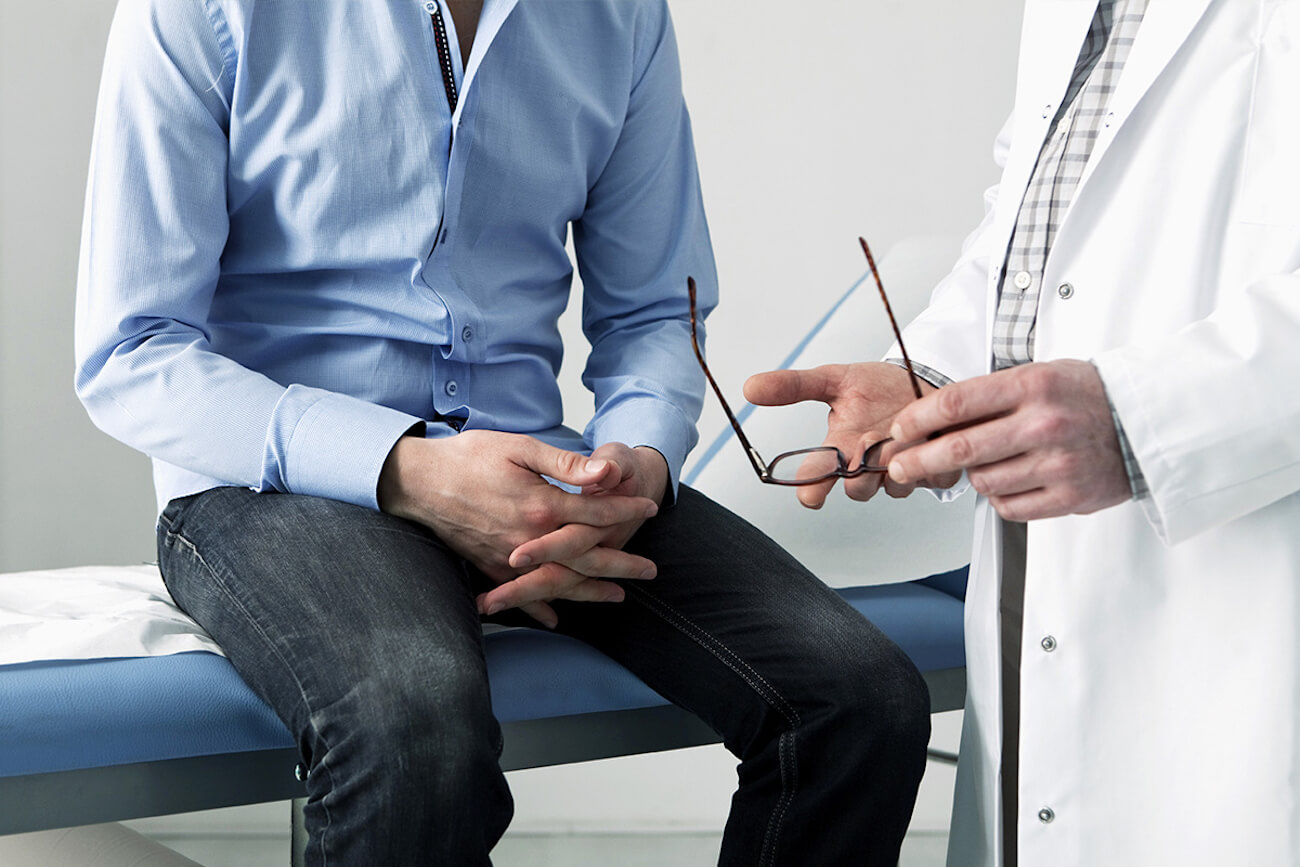At the preventive check-up, the urologist will be interested in your family history, i.e. the occurrence of cancer and other diseases in blood relatives, your health problems and the medications you take. Blood and urine tests are the first to take place. You should ideally come to the examination with a full bladder. At your request, we can also perform culture tests for sexually transmitted infectious diseases such as gonorrhoea, candidiasis, ureaplasma, mycoplasma and chlamydia. Subsequently, ultrasonography (USG) is performed, by which the urologist checks the kidneys, bladder and prostate, and in special cases also the external genitalia.
The abdomen is palpated, the organs of the urinary tract are examined, the external genitalia are examined, where the doctor’s attention is focused on the presence of tumors, signs of inflammation, discharge, condylomas, and the like.
Equally important is the palpation (tactile) examination of the prostate (prostate screening), which is performed through the rectum and the urologist can more accurately assess the shape, size, elasticity, and border of the prostate and the patient also informs the doctor about any increased sensitivity that could indicate inflammation. The examination is painless, quick and there is no need to worry about it in any way.
Currently, the age limit for the first preventive check-up has been raised from 50 to 40 years and should be repeated at least every three years thereafter. In the case of a positive family history of prostate cancer, it is recommended to perform follow-up examinations even more frequently.

























